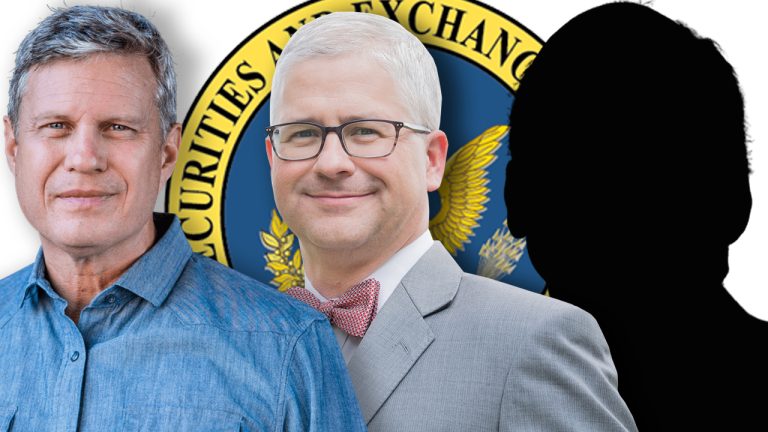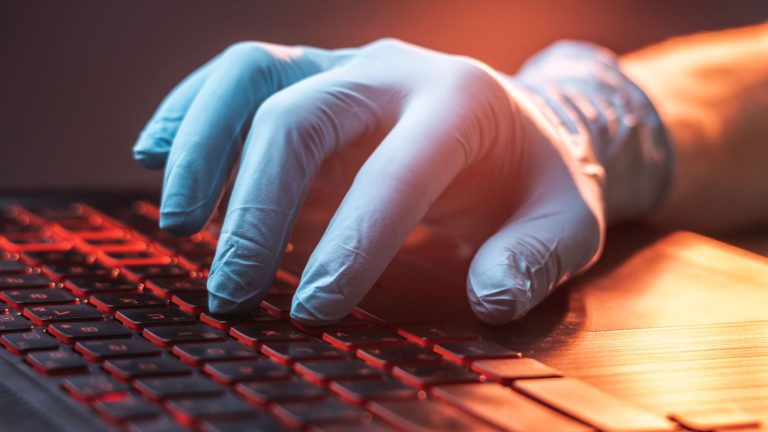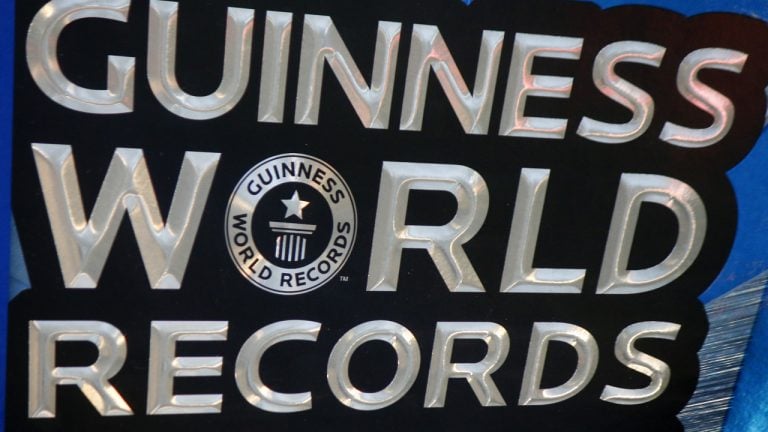 Central banks show continued demand for gold in 2023, as per a recent report from the World Gold Council (WGC), which noted that the world’s central banks accumulated 31 tons of the precious metal in January. Turkey was the largest gold buyer, adding 23 tons to its central bank’s stash, while the People’s Bank of […]
Central banks show continued demand for gold in 2023, as per a recent report from the World Gold Council (WGC), which noted that the world’s central banks accumulated 31 tons of the precious metal in January. Turkey was the largest gold buyer, adding 23 tons to its central bank’s stash, while the People’s Bank of […] On Feb. 10, 2023, Republicans Patrick McHenry of North Carolina and Bill Huizenga of Michigan, both members of the U.S. House of Representatives, sent a letter to Securities and Exchange Commission (SEC) chairman Gary Gensler seeking answers about the arrest of FTX co-founder Sam Bankman-Fried prior to his scheduled testimony before the House Financial Services […]
On Feb. 10, 2023, Republicans Patrick McHenry of North Carolina and Bill Huizenga of Michigan, both members of the U.S. House of Representatives, sent a letter to Securities and Exchange Commission (SEC) chairman Gary Gensler seeking answers about the arrest of FTX co-founder Sam Bankman-Fried prior to his scheduled testimony before the House Financial Services […] A hospital in Romania has been targeted in a ransomware attack with the perpetrators seeking payment in cryptocurrency to decrypt its database. The hack prevents the medical institution from reporting to the country’s health insurance fund in order to receive due funding. Botoşani Hospital Blackmailed for Bitcoin, Romanian Media Reports The Saint Gheorghe Recovery Hospital […]
A hospital in Romania has been targeted in a ransomware attack with the perpetrators seeking payment in cryptocurrency to decrypt its database. The hack prevents the medical institution from reporting to the country’s health insurance fund in order to receive due funding. Botoşani Hospital Blackmailed for Bitcoin, Romanian Media Reports The Saint Gheorghe Recovery Hospital […] Bankrupt crypto exchange FTX and its founder’s parents have purchased properties for almost $121 million in the Bahamas, according to a media report. Some of these were supposed to be used by the company’s senior executives, quoted documents have revealed. Bankman-Fried’s Parents Trying to Return Vacation Home to FTX FTX, the parents of its founder […]
Bankrupt crypto exchange FTX and its founder’s parents have purchased properties for almost $121 million in the Bahamas, according to a media report. Some of these were supposed to be used by the company’s senior executives, quoted documents have revealed. Bankman-Fried’s Parents Trying to Return Vacation Home to FTX FTX, the parents of its founder […] Since 1955 Guinness World Records (GWR) has published a reference book annually that covers world records from extreme natural events to human achievements. This year, Bitcoin has entered the fray as the world’s first and most valuable cryptocurrency network as GWR has added the subject to this year’s annual records. Satoshi Nakamoto’s Bitcoin Enters the […]
Since 1955 Guinness World Records (GWR) has published a reference book annually that covers world records from extreme natural events to human achievements. This year, Bitcoin has entered the fray as the world’s first and most valuable cryptocurrency network as GWR has added the subject to this year’s annual records. Satoshi Nakamoto’s Bitcoin Enters the […] This week, the rapper Snoop Dogg spoke about the crypto crash in an interview with CNBC on Tuesday and explained that he believes the cryptocurrency economy will bounce back. Snoop said that he feels like the crash “‘weeded’ out all of the people” that were not supposed to be in the space in the first […]
This week, the rapper Snoop Dogg spoke about the crypto crash in an interview with CNBC on Tuesday and explained that he believes the cryptocurrency economy will bounce back. Snoop said that he feels like the crash “‘weeded’ out all of the people” that were not supposed to be in the space in the first […] Americans are worried about a new tax reporting requirement that will force applications like Venmo, Cash App, Paypal, Airbnb, and Ebay to send 1099-K forms to users. The U.S. Internal Revenue Service (IRS) is specifically focusing on payments of $600 or more for goods and services received through a third-party payment network. US Residents Think […]
Americans are worried about a new tax reporting requirement that will force applications like Venmo, Cash App, Paypal, Airbnb, and Ebay to send 1099-K forms to users. The U.S. Internal Revenue Service (IRS) is specifically focusing on payments of $600 or more for goods and services received through a third-party payment network. US Residents Think […]
Blockchain documentation service Transcrypts announced a partnership with the humanitarian organization on Thursday.
At a November 11 press conference, blockchain- based document security company Transcrypts announced a partnership with Doctors Without Borders, or DWB, that began on October 14th. Working together, they have already uploaded 6500 immunization records to the blockchain, with a goal of 76000 by 2022.
Most of the recorded immunizations are COVID 19 vaccines, but the company stated that the eventually the goal is to store all patient medical records on the blockchain, where they will be accessible from a patient's phone. The nascent California based startup was founded last year by Zain Zaidi — then still an electrical engineering student at San Jose State University. The company now counts Paychex, ADP, Zoom, Spirit Airlines and Oracle as its clients.
Transcrypts began as a tool to combat resume fraud marketed to human resources professionals, before expanding into income verification for landlords. Now, the firm said that it views itself as a full service documentation service. The DWB partnership is its first foray into medical records. Previously Transcrypt had found that HIPAA and other compliance laws essentially barred blockchain as an acceptable method of storage for medical records within the United States.
Speaking on the accessibility of patient medical records in developing nations, Zaidi said that blockchain could provide significant help in preventing many unnecessary deaths:
“In India over 700,000 people die every year from the lack of access to a patient’s medical records. A majority of these deaths could have been prevented if physicians had access to a patient’s comprehensive health care records. With this partnership, Doctors Without Borders and TransCrypts hopes to build a future where this loss of life can be mitigated.”
This is not the first time COVID vaccination records have been stored on the blockchain. Cointelegraph reported in January about veChain’s launch of a program to do so at a large hospital in Cyprus.

In an effort to save the future of the Library of Alexandria, blockchain technology could help preserve records and archive systems.
The study of history and ancient people is immensely important to preserving the knowledge passed down through the generations.
Unfortunately, the significance of the knowledge is particularly acute when it is lost. With tragedies such as the fire of the Library of Alexandria, or the pillaging of the House of Wisdom in ancient Baghdad, or the more recent losses of artifacts at the Iraq Museum, perspectives were lost, advancements in philosophy and literature were forgotten, and languages and translations vanished from the earth.
As we look to preserve our history, how can we safeguard the artifacts of our heritage from disaster?
Using blockchain technology to keep a record of the data stored on a decentralized cloud service could be exactly what the historical and archive industries need to protect our collective human history from destruction, pillage and faulty record-keeping.
The archive industry in many sub-sections is underfunded and lacks the means to properly care for the data being held. As told in this 2014 declaration petitioning for more funding for the United States Archive, it is clear that there is a lack of funding on many fronts, which could result in the loss of physical and digital records.
An alternative solution is to store data directly on the blockchain. As David Vorick, CEO of Skynet and co-founder of Sia, said to Cointelegraph, “a major advantage of using a blockchain is that you can build on an open marketplace, which ensures fair pricing for everyone.” This prevents third parties from taking part of the funding, while also making sure that community members who are passionate about protecting their heritage can fund a storage system directly.
Vorick further stated that “if you depend on external infrastructure, you have given your infrastructure provider the ability to fully disrupt your business — something that they will happily use to their advantage.”
Often, concerns arise over the legitimacy, security and the privacy of stored information. Many documents and records are preserved for the people of the community and, therefore, need to be safe and secure for the sake of their heritage. The nature of blockchain-based data keepers protect information not by storing it in centralized databases like some of the leading organizations do, thus making it more susceptible to data breaches, but by dividing files “into multiple pieces and send them to different servers or nodes, thereby reducing the possibility of external control over user data.”
Another important aspect of archive storage on the blockchain is the immutability of the document itself. “But online archives are also vulnerable to the removal of documents in ways that are impossible to detect,” noted The Social Science Research Council. It also recorded that back in 2001, writers were given the rights to an online archive of their own works, but other parties were able to go in and delete the writers’ works, all without disclosing the information or with any indication as to why an article was deleted. Articles and publications have been lost because some articles were not deemed worthy to be saved.
Blockchain archives could store data across nodes all over the world to make sure that it is a permanent fixture on the blockchain and, thus, in history.
This, conveniently, leads to the next part of the benefits of blockchain technology: giving credit where credit is due by establishing an immutable record of ownership. Through using a blockchain, there will be no doubt as to who owns what — like a digital passport for documents and records.
Blockchain enthusiasts often explain that “immutability provides integrity,” protecting who owns the document and who has and had access to it. For example, nonfungible tokens, or NFTs, are causing the art industry to take another look at ownership rights, “allowing artists to protect their creations from falsification and duplicity in the digital realm.” By using this same idea with archive and data collection, there will always be a way of making sure the records are not tampered with, proving the original owner and original format.
Related: How does blockchain work? Everything there is to know
In hindsight, we are able to look back in history to see what went wrong and what could have helped.
While this could be to prevent other similar problems from occurring, or simply out of curiosity, this practice could save our dying languages and keep the memories of people alive for the upcoming generations.
Imagine if all of the records lost in the great fire of the Library of Alexandria — or those lost in the destruction of its temple, the Serapeum, 500 years later — were kept on a blockchain. What information would we study and learn that could have changed modern society forever?
During the pillaging of the House of Wisdom of Ancient Baghdad, which held some of the world’s finest translations, philosophical and religious texts were destroyed and dumped into the Tigris, causing it to flow “black for half a year because of the ink from the thousands of books drowned to their metaphorical deaths.” Losing these precious records has done unfathomable damage to our understanding of humanity, which has been often historically seen as a way to weaken heritage and rewrite narratives. Therefore, according to “Lost Memories - Libraries and Archives Destroyed in the Twentieth Century” by the United Nations Education, Scientific and Cultural Organization, “measures must be taken to preserve our written heritage.”
The use of immutable blockchain technology to keep records secure could have been immensely beneficial during the 2018 fire that scorched through the National Museum of Brazil and destroyed invaluable records of our history and works of art. Dalton de Souza Amorim, a professor at the University of São Paulo, noted that “the anthropological collections were the worst loss,” which were recordings of indigenous languages that are now gone forever.
While blockchain technology cannot protect physical objects from accidental or deliberate damages, the data from these objects and researchers that is recorded, much like recordings of people speaking now forgotten languages, can be protected.
American anthropologist Clifford Geertz stated in his essay “Religion as a Cultural System” that culture is “an historically transmitted pattern of meanings embodied in symbols, a system of inherited conceptions expressed in symbolic forms by means of which men communicate, perpetuate, and develop their knowledge about and their attitudes toward life,” and therefore, protecting the records of language is necessary for protecting people’s cultures.
Putting ownership on a blockchain would soften the ongoing debate on who owns what regardless of who found it and who now holds it. This rings especially true when thinking about the recent success of Iraq and Egypt in claiming 11,500 artifacts back after a fight to prove ownership and “coordinate the return of around 5,000 ancient papyrus fragments and 6,500 ancient clay objects because the artifacts lack reliable provenance, or ownership histories.” By using a blockchain, countries and communities will no longer need to claim ownership of any documents or records since all of the proper information will be recorded and safe from tampering.
Now that we are equipped with blockchain technology, we can position ourselves to protect and pass on our knowledge and history to future generations without the fear of potentially losing records, materials and data forever. If we know how vital blockchain technology is at keeping and retrieving information, imagine how many Libraries of Alexandria could be saved in the future.